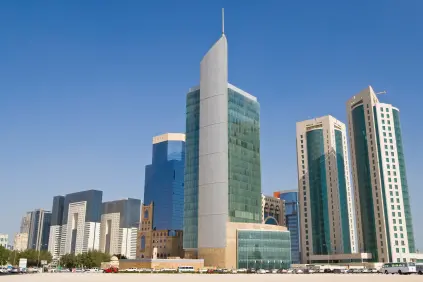PHOTO
By Peter Alagos
Continued investments in non-hydrocarbon sectors, alongside recovering oil prices, are expected to aid Qatar’s economic growth and disposable income, an official of Alpen Capital has said.
Citing IMF figures, Alpen Capital Investment Bank (Qatar) managing director Sanjay Bhatia said Qatar’s GDP per capita is projected to expand at an annualised average rate of 6.3% between 2016 and 2021, which points towards the growth prospects of the country.
“Given the recent drop and fluctuations in oil prices, the Qatar economy, like the other GCC economies, has been subdued. Over the last few weeks, oil prices have been relatively stable, which has provided a positive impetus to the overall sentiments. We are now seeing an improvement in the market sentiments and expect to see a surge in overall business activities.
“We remain cautiously optimistic on the medium-term growth; however, for 2017, we expect the Qatar economy to remain subdued in the first half and expect the activity and the general market sentiments to improve thereafter,” Bhatia told Gulf Times.
Asked about other economic headwinds in 2017 aside from lower oil revenues last year, Bhatia said the fall in oil revenues affected the scheduled projects across various sectors, adding that austerity measures undertaken by the Qatar government to manage the situation also saw a cutback in infrastructure spending and project delays.
“This has also led to tightening of liquidity, and increased cost of funding including increase in the Qatar Central Bank benchmark rates. We are seeing a price correction in the real estate sector, which could have a positive impact on rentals for some of the businesses, but overall will marginally impact the economic growth in 2017,” he said.
Bhatia said changes in the government’s policies, especially to assist industrial growth and infrastructure development, as well as promotion of businesses in non-hydrocarbon sectors “will definitely provide a boost to the Qatar economy.”
“With the launch of special economic zones such as Manateq, we see a growing push towards private sector participation, which will also provide the much required impetus to future growth prospects.
“Sectors such as healthcare and education are expected to grow in Qatar on the back of government funding and increased private sector participation. Other factors such as rise in population and higher disposable incomes will contribute to the growth of the economy,” he said.
Bhatia also noted that fluctuations in oil prices and a “general subdued market sentiment,” as well as curbed government spending had affected Qatar’s cross-regional M&A activities (inbound and outbound).
“We are, however, seeing a lot more M&A activity within Qatar…we expect to see a lot more on the M&A activity in Qatar along with consolidation across select sectors.
Qatar businesses are also seeking funding support from regional and international banks given liquidity and increased pricing,” he added.
© Gulf Times 2017





















